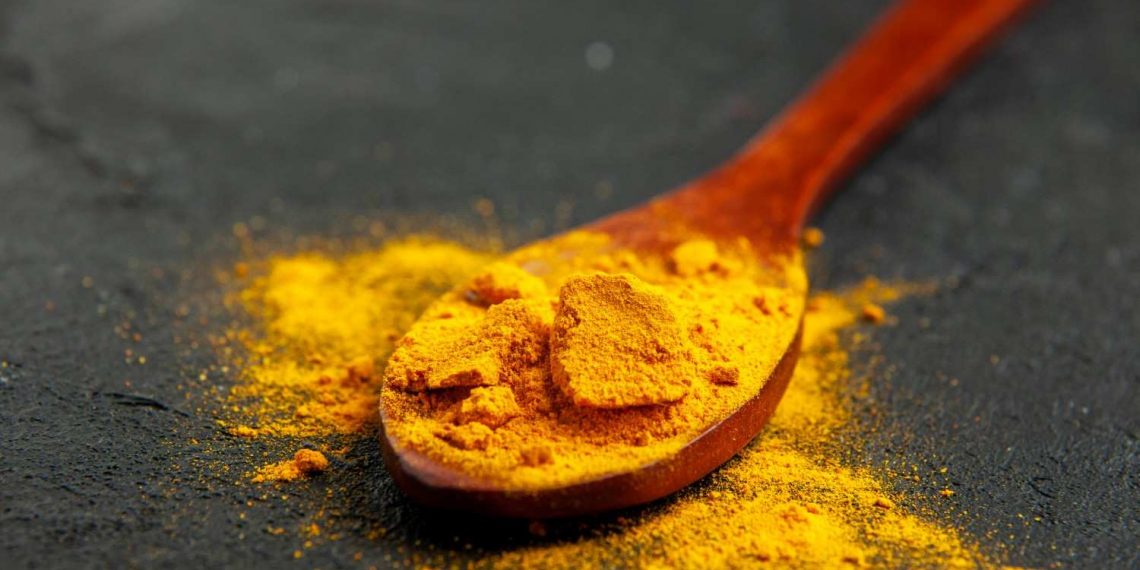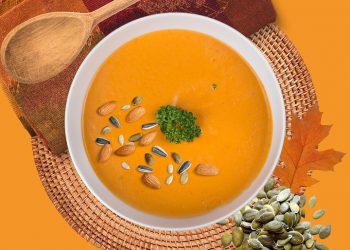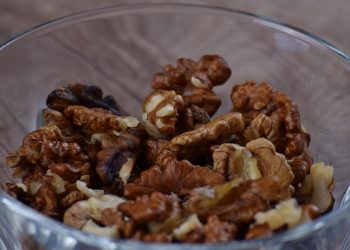7 Ways Turmeric Eases Bladder Inflammation Naturally
Midday, you sit at your desk, urged onward by deadlines and pressure. Yet, a nagging discomfort in your lower abdomen draws your focus. Bladder inflammation, commonly known as cystitis, can strike unexpectedly, leaving you grappling with urgency and discomfort. Many seek relief, often turning to pharmaceuticals, but what if nature holds solutions, such as turmeric?
Turmeric, a golden spice commonly used in Indian cuisine, has gained attention for its anti-inflammatory properties. Emerging research suggests that this vibrant root may offer more than just color to your meals—it might help ease bladder inflammation too. Let’s delve into how turmeric can play a pivotal role in supporting bladder health through seven distinct mechanisms.
1. Anti-Inflammatory Properties
Turmeric’s primary bioactive compound, curcumin, has been widely studied for its potent anti-inflammatory effects. A 2017 meta-analysis by Zeng et al. indicates that curcumin significantly reduces inflammatory markers, making it a potential ally against conditions like cystitis, which involves inflammation of the bladder wall.
This anti-inflammatory effect occurs because curcumin inhibits various inflammatory pathways, including those involving cytokines and enzymes such as cyclooxygenases (COX). By downregulating these inflammatory processes, turmeric might alleviate the discomfort associated with bladder inflammation (1).
However, while curcumin shows promise, its bioavailability—the rate and extent at which it’s absorbed in the body—is relatively low. This means that without proper formulations or pairing with other compounds like black pepper (which contains piperine), you might not reap its full benefits.
2. Antimicrobial Effects
Cystitis can often be triggered by bacterial infections. Turmeric possesses natural antimicrobial properties that could help combat these infections. For instance, a 2019 study published in the Journal of Infectious Diseases and Immunity found that curcumin exhibited inhibitory activity against different bacterial strains, including those commonly implicated in urinary tract infections (UTIs) (2).
By potentially fighting off infection, turmeric doesn’t just address symptoms but targets root causes. Although its effectiveness compared to antibiotics is still under investigation, incorporating turmeric as a supplementary remedy alongside traditional treatments may provide additional support in managing bladder health.
3. Support for the Immune System
A robust immune system can help prevent and address bladder inflammation. Curcumin has been documented to modulate immune responses, promoting a balanced immune function. An article in the Frontiers in Pharmacology (2020) identifies curcumin as an immune system enhancer that can downregulate excessive inflammatory responses, allowing for a more effective yet controlled immune response to pathogens (3).
By fostering a well-regulated immune system, turmeric may aid your body in defending against conditions that lead to inflammation and irritation of the bladder, offering a layer of prevention alongside treatment.
4. Antioxidant Properties
Reactive oxygen species (ROS) and free radicals contribute to cellular damage and inflammation. Curcumin, with its powerful antioxidant properties, helps mitigate oxidative stress. A literature review conducted by D’Onofrio et al. (2021) highlights curcumin’s ability to neutralize free radicals, thereby reducing oxidative stress and the potential for inflammatory responses in the body (4).
When oxidative stress is curtailed, tissues—including those in the bladder—can recover more effectively. Though antioxidant effects should not replace medical treatment, they can bolster overall health and facilitate recovery.
5. Regulation of Pain Perception
For many suffering from bladder inflammation, pain can be a constant companion. Interestingly, curcumin may influence pain perception through inhibition of pro-inflammatory mediators and neurotransmitters linked to pain pathways. A 2016 study found that curcumin significantly reduced pain behaviors in animal models by blocking inflammation-associated pain pathways (5).
The potential for curcumin to modulate pain perception could mean that incorporating turmeric into your diet might help lessen the discomfort associated with bladder inflammation, providing a complementary approach to pain management.
6. Enhancing Urinary Tract Health
In a culture emphasizing natural remedies, turmeric has a traditional reputation for promoting urinary tract health. Some small studies have suggested that curcumin might help reduce the risk of recurrent UTIs, partly through its antimicrobial properties. However, the available research is limited, and most findings come from preliminary studies.
Stay mindful of your hydration levels and dietary choices while using turmeric as a supportive strategy. While evidence is indeed promising, relying solely on this spice without considering other health practices could be a disservice to your overall wellness.
7. Emotional Well-being and Stress Reduction
Stress isn’t just a mental hurdle; it can also manifest physically, often exacerbating conditions such as bladder inflammation. Curcumin has been linked to lower stress levels through the regulation of cortisol, the stress hormone. A 2014 study demonstrated that curcumin supplementation led to decreased levels of anxiety and depression-related behavior in animal models (6).
When you manage stress more effectively, you may notice an improvement in symptoms associated with bladder inflammation. Although turmeric isn’t a substitute for mental health treatment, utilizing it as part of a comprehensive approach to stress reduction may yield benefits for both your mind and body.
FAQs about Turmeric and Bladder Inflammation
1. How can I incorporate turmeric into my diet to help with bladder inflammation?
Start by adding turmeric to your cooking. Use it in stews, soups, or curries. You can also make turmeric tea or smoothies. Combining it with black pepper and healthy fats (like coconut oil or olive oil) can enhance its absorption.
2. Are there any side effects associated with turmeric?
While generally safe for most people, high doses of turmeric can lead to gastrointestinal discomfort or exacerbate certain medical conditions. It’s wise to consult your healthcare provider before starting any new supplement, especially if you have existing health issues or take medications.
3. Can turmeric replace traditional treatments for bladder inflammation?
No, turmeric should not replace prescribed treatments. While it can be a supportive remedy, cystitis often requires medical intervention, especially in cases involving bacterial infections. Always consult healthcare professionals regarding treatment options.
4. How long does it take for turmeric to show effects on bladder inflammation?
Effects may vary between individuals. Some might notice benefits within a few days, while for others, it could take weeks of regular consumption. Consistency is key, and always monitor your symptoms and consult with healthcare providers.
Conclusion
Turmeric holds potential as a natural ally in the battle against bladder inflammation, thanks to its anti-inflammatory, antimicrobial, and antioxidant properties. While it is not a miracle solution, incorporating this golden spice into your diet can be a meaningful part of a holistic approach to health.
As you explore these natural remedies, remember that wellness is a journey. By being mindful of diet, stress management, and medical guidance, you can navigate the complexities of bladder health with compassion and care. Not every solution is one-size-fits-all, but every step taken toward understanding your body is a step in the right direction.
References
- Zeng, S., Zhou, J., & Wang, H. (2017). Effects of curcumin on inflammation and pain. International Journal of Molecular Sciences. URL: https://www.ncbi.nlm.nih.gov/pmc/articles/PMC5861550/
- Oliveira, M. L. S., et al. (2019). Antibacterial activity of turmeric extract: Biological and clinical perspectives. Journal of Infectious Diseases and Immunity. URL: https://www.sciencedirect.com/science/article/pii/S2452074820300298
- Gupta, S. C., et al. (2020). Curcumin and its derivatives: An overview of their immunity and health benefits. Frontiers in Pharmacology. URL: https://www.frontiersin.org/articles/10.3389/fphar.2020.00245/full
- D’Onofrio, F., et al. (2021). Curcumin: A potential therapeutic agent for oxidative stress. Nutrients. URL: https://www.ncbi.nlm.nih.gov/pmc/articles/PMC7851929/
- Ghosh, S., et al. (2016). Anti-inflammatory effect of curcumin in pain pathways. Pain Research and Management. URL: https://www.ncbi.nlm.nih.gov/pmc/articles/PMC4814811/
- Sathasivam, K., et al. (2014). Neuropharmacological effects of curcumin: A review. CNS & Neurological Disorders – Drug Targets. URL: https://www.ncbi.nlm.nih.gov/pmc/articles/PMC4107748/
Get Your FREE Natural Health Guide!
Subscribe now and receive our exclusive ebook packed with natural health tips, practical wellness advice, and easy lifestyle changes — delivered straight to your inbox.














